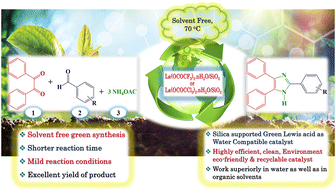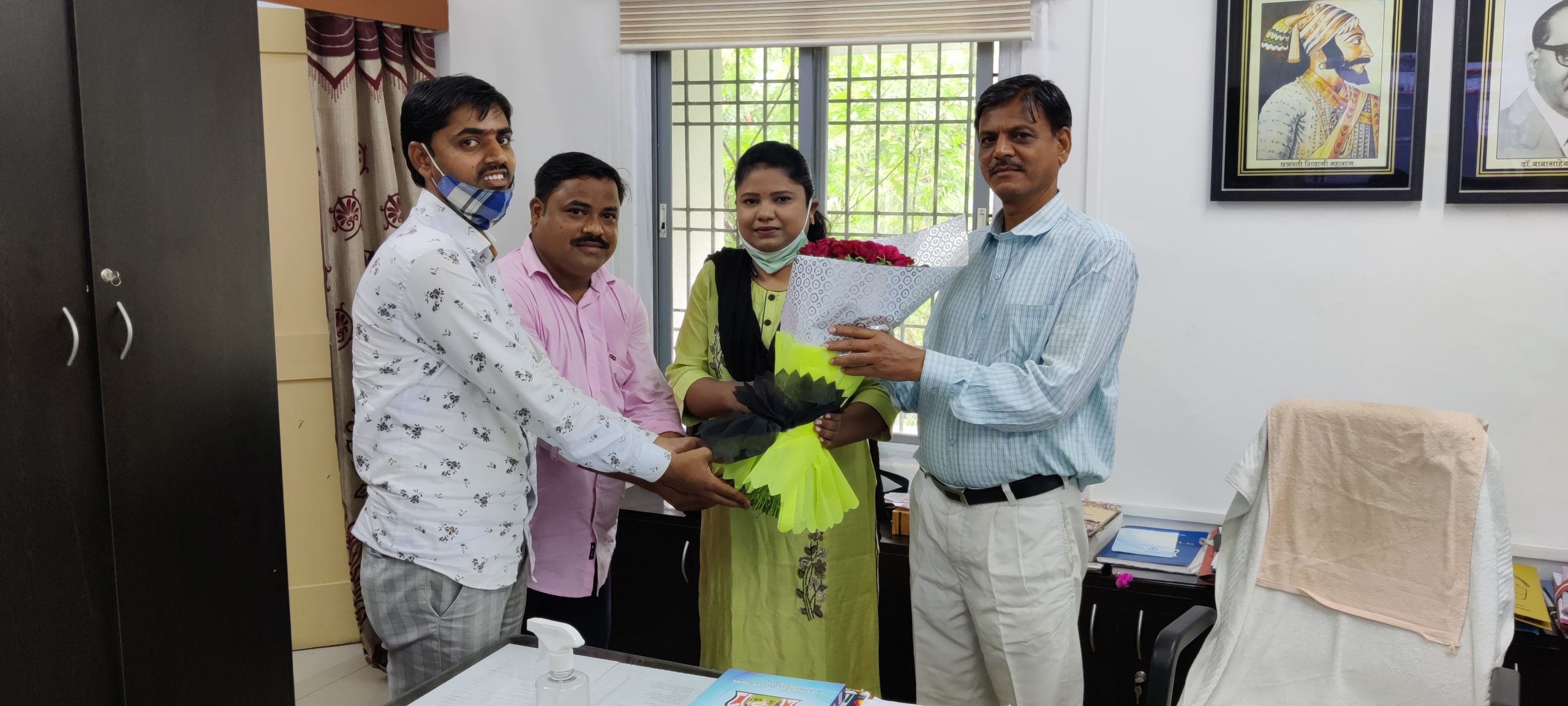We are very pleased to introduce Dr. Machhindra K. Lande who is the corresponding author of the RSC Advances article, Silica supported lanthanum trifluoroacetate and trichloroacetate as an efficient and reusable water compatible Lewis acid catalyst for synthesis of 2,4,5-triarylimidazoles via a solvent-free green approach. This was well received by reviewers and was handpicked by our handling editors to be part of our Popular Advances collection – a big congratulations to all the authors!
Dr Lande told us more about his research group and the work that went into this study and what he hopes to achieve in the future. You can explore other articles in our 2023 Popular Advances online collection here!
Meet the Author
Dr. M. K. Lande is a professor and head of the department of chemistry at Dr. B. A. M. University, Aurangabad (Maharashtra, India). His research group includes Mr. Dnyaneshwar Purushottam Gholap, Mr. Ramdas Huse and Mr. Dipake Sudarshan, who were actively involved in contributing towards this popular advances article. Dr. M. K. Lande’s group’s research area includes Natural and synthetic zeolites catalysts, Lewis acid catalysts for organic transformation, mixed metal oxides as catalysts for organic transformations, metal-organic frameworks and DFT studies of chemical compounds using Gaussian 09 software.
Could you briefly explain the focus of your article to the non-specialist (in one or two sentences only) and why it is of current interest?
The present research work is mainly focused on the development of novel water-compatible, environment-friendly and economically cheaper heterogeneous Lewis acid catalysts as competitive alternatives to highly expensive Metal triflate catalysts.
How big an impact could your results potentially have?
The currently prepared water-competent Lewis acid catalyst shows excellent catalytic efficiency in 2,4,5-triaryl imidazole synthesis via green route, compared to many catalysts, especially Metal triflate Lewis acid catalyst. Further, these Lewis catalysts were prepared by commercially available cheaper starting material hence it is economically more favourable as compared to highly expensive Metal triflate Lewis acid.
Could you explain the motivation behind this study?
By considering the special attention and importance of Lewis acid as a catalyst in many industrial processes and organic transformations, we had planned to design novel water-compatible Lewis acid. However, currently, many conventional Lewis acids and green Lewis acids were used in the reaction, but they have many limitations.
Among all these, metal triflate is one of the most widely used green Lewis acids but they are highly expensive and moisture sensitive. In regard to this, we have developed economically favourable and environment-friendly green silica supported Lanthanum trifluoroacetate and trichloroacetate Lewis acid catalysts.
In your opinion, what are the key design considerations for your study?
The key design considerations of the present research work are as follows
– Water-competent Green Lewis acid catalysts
– Highly efficient, clean, environment-friendly and recyclable Lewis acids
– Catalyst work superiorly in water and organic solvents
– Solvent-free green synthesis in a short time with excellent product yield
Which part of the work towards this paper proved to be most challenging?
The synthesis of present Lewis acids was found to be most challenging as special precaution and care were needed during the handling of trifluoracetic acid and trichloroacetic acid.
What aspect of your work are you most excited about at the moment?
The present Lewis acid can become a good competitive alternative to green Lewis acid catalysts, especially highly expensive metal triflate Lewis acids.
What is the next step? What work is planned?
To design and develop more novel, environment-friendly and economically favorable green Lewis acid catalysts & utilize them in various industrially demanded processes and organic transformations.
Dnyaneshwar Purushottam Gholap, 
Submit to RSC Advances today! Check out our author guidelines for information on our article types or find out more about the advantages of publishing in a Royal Society of Chemistry journal.
Keep up to date with our latest Popular Advances, Reviews, Collections & more by following us on Twitter. You can also keep informed by signing up to our E-Alerts.











